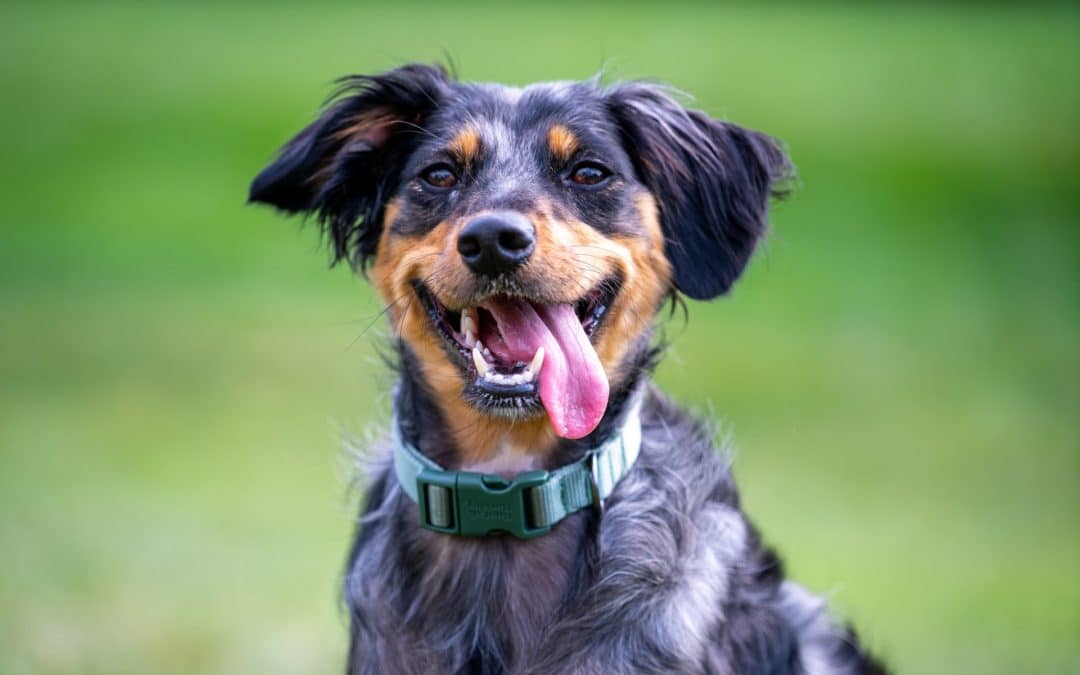Unlike humans, dogs don’t lose any self-confidence when they have bad teeth. However, dogs can experience painful toothaches, tooth decay, and tooth loss if they don’t get dental care. You can ensure that your dog has strong, healthy teeth by maintaining a good oral hygiene routine. Here are four ways you can keep your dog’s teeth clean and healthy.
How to Keep Your Dog’s Teeth Clean
1: Brush Their Teeth
Humans aren’t the only ones susceptible to tooth decay. Plaque and tartar can weaken your dog’s teeth, too. But dogs can’t brush their teeth themselves, so it’s up to you to protect your pup’s dental health.
Brushing your dog’s teeth every day is ideal, but it can take a while to get your dog comfortable with tooth brushing and it takes time to brush every tooth thoroughly. If you can’t fit daily brushing into your schedule, you should be brushing your dog’s teeth at least once a week.
Always use a toothbrush and toothpaste that are specifically designed for dogs. It’s crucial that you choose dog toothpaste—ingredients like xylitol and fluoride found in human toothpaste are toxic to dogs. Toothbrushes for dogs have an angled handle and soft bristles that fit a dog’s mouth comfortably.
You may need to try several different types of dog toothpaste and toothbrushes before you find the one your pup likes best. Making the experience as pleasant as possible for your dog will make it much easier to keep up with the oral hygiene routine.
2: Give Them Good Chew Toys
The instinct to chew is normal for dogs of all ages. Chewing naturally helps clean your dog’s teeth, and it also relieves stress and strengthens their jaw muscles. To prevent your favorite pair of slippers from falling victim to chewing, it’s important to invest in a few chew toys.
Keep your dog safe by choosing toys that are specifically designed for chewing and that are the right size for your dog’s mouth. Toys with small parts that can be chewed off could be a choking hazard. You can make chew toys last longer and keep your dog interested in them by rotating several toys in and out instead of making them all available at once.
However, just because chew toys can help clean your dog’s teeth, this doesn’t mean they’re a replacement for brushing. It’s like when you use mouthwash—it can’t replace the power of brushing teeth, it just helps get your teeth a little bit cleaner.
3: Try Dental Treats
Most dogs can’t resist a tasty treat, and some treats are actually designed to improve your dog’s oral health. Dental treats can help remove plaque buildup and even freshen your dog’s breath. But just like chew toys, dental treats are not a replacement for brushing.
Keep in mind that treats should never make up more than 10% of your dog’s diet. Too many treats of any kind can lead to digestive problems and cause your dog to become overweight. Some dogs are also particularly sensitive to certain ingredients. It’s a good idea to consult your vet about the best type of dental treats for your dog.
4: Schedule Professional Teeth Cleanings
All dogs need professional preventative dental care, just like we do. Veterinary dental cleanings can significantly reduce your dog’s risk of dental issues like gum disease and tooth loss. Veterinary dentists can also identify the early signs of these problems and ensure that your dog gets immediate treatment so they can eat and chew comfortably.
The best way to protect your dog’s teeth is to combine at-home dental care with professional teeth cleanings. Dogs typically need to get their teeth cleaned by a veterinary dentist once a year. However, some breeds are more susceptible to gum disease, and may need more frequent cleanings.
Dog Dentist in Gilbert, Arizona
Your dog’s teeth might look healthy, but there could be issues below the gumline that are causing your pet pain. Regular oral exams and radiographs are essential for detecting these dental issues.
The team at Anasazi Animal Clinic provides compassionate dental services to help prevent, diagnose, and treat tooth decay and gum disease in pets. If your dog is due for an oral checkup, give us a call at 480-497-0505 today to schedule an appointment.
Images used under creative commons license – commercial use (11/11/2022). Photo by R.D. Smith on Unsplash

